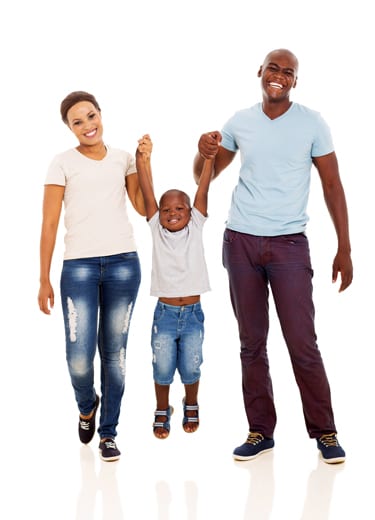0%
33% Of teens
are in an
abusive relationship
0%
81% Of parents believe teen dating violence is not an issue or admit they don’t know if it’s an issue
0%
33% Of teens who were in a violent relationship ever told anyone about the abuse
Are you in a violent relationship?


Too Common
- Nearly 1.5 million high school students nationwide experience physical abuse from a dating partner in a single year.
- One in three adolescents in the U.S. is a victim of physical, sexual, emotional or verbal abuse from a dating partner, a figure that far exceeds rates of other types of youth violence.
- One in 10 high school students has been purposefully hit, slapped or physically hurt by a boyfriend or girlfriend.
Why Focus on Young People?
- Girls and young women between the ages of 16 and 24 experience the highest rate of intimate partner violence — almost triple the national average.
- Among female victims of intimate partner violence, 94% of those age 16-19 and 70% of those age 20-24 were victimized by a current or former boyfriend or girlfriend.
- Violent behavior typically begins between the ages of 12 and 18.
- The severity of intimate partner violence is often greater in cases where the pattern of abuse was established in adolescence.
Don’t Forget About College Students
- Nearly half (43%) of dating college women report experiencing violent and abusive dating behaviors.
- College students are not equipped to deal with dating abuse – 57% say it is difficult to identify and 58% say they don’t know how to help someone who’s experiencing it.
- One in three (36%) dating college students has given a dating partner their computer, online access, email or social network passwords and these students are more likely to experience digital dating abuse.
- One in six (16%) college women has been sexually abused in a dating relationship.
Long-lasting Effects
- Violent relationships in adolescence can have serious ramifications by putting the victims at higher risk for substance abuse, eating disorders, risky sexual behavior and further domestic violence.
- Being physically or sexually abused makes teen girls six times more likely to become pregnant and twice as likely to get a STI.
- Half of youth who have been victims of both dating violence and rape attempt suicide, compared to 12.5% of non-abused girls and 5.4% of non-abused boys.
Lack of Awareness
- Only 33% of teens who were in a violent relationship ever told anyone about the abuse.
- Eighty-one (81) percent of parents believe teen dating violence is not an issue or admit they don’t know if it’s an issue.
- Though 82% of parents feel confident that they could recognize the signs if their child was experiencing dating abuse, a majority of parents (58%) could not correctly identify all the warning signs of abuse.
**Information provided by loveisrespect.org, an amazingly informative website for teens whether in a relationship or not.***
Survivors Speak Out
Hear their voices. Share their stories. Make their trauma count.

"Jackie" Student in Williamson County
"Jackie" had been dating an older boy that attended another school in the same area where they live. He was a senior and when she first got involved with him he was very nice to her. It felt great that this older boy was interested in hanging out and being her friend.
But it wasn’t long after they got together that he started being jealous. He constantly watched her to see if she was cheating on him. He went crazy if she would talk to other guys and accused her of flirting with every guy she talked to. He told her she was “his” and she should do as he said. At the time, Jackie thought it was cute that he loved her and wanted her so much.
He didn’t like her talking to her friends and was very critical of them. After a while, he prohibited her from speaking to any of her friends. Whenever she tried to argue with him, he would get very aggressive and pushy towards her. Jackie didn’t want any problems and she would give in to his demands. After an explosive episode, he would be nice, would apologize and tell her that he acted like that because he loved her so much.
One day, he got really angry because he saw her talking to one her male classmates. He questioned her and she told him to “just shut up.” He got really angry and slapped her across the face. People were watching and he started screaming at them and telling them to mind their own business.
Jackie had tried several times to break up with him, but he would threaten to harm himself or tell awful lies to her parents and she would decide to stay with him. She told him that she didn’t want to see him anymore and he threatened to tell her parents that they had sex and did drugs, which were lies. His older sister used to see how he treated her, but she would make it sound like it was her fault for putting up with it. She would tell her how she knew what his temper was like, and that she shouldn’t provoke him.
The last straw, which made her end the relationship, was when her boyfriend got really mad and pushed her, making Jackie fall on the pavement and bruise her face. He also destroyed her backpack and books. Jackie decided that was it. She got home and told her parents.
Jackie's mom was able to get in touch with Hope Alliance and schedule an appointment with one of our counselors. Jackie was able to unload and tell our counselor what had been going on. With the help of our counselor, Jackie was able to heal and gain her confidence and independence back. She was able to make a plan of action and decided not to have contact with her abuser anymore. She also learned how to identify relationship red flags and how to set healthy boundaries.
Three years later, Jackie has graduated from high school and she is in the process of applying for college where she would like to pursue a career in counseling/social work. The healing and help that Hope Alliance provided to her not only empowered her to heal herself but has also gave her the strength to want to help others.

